Latest News

BUSINESS QUARTERLY – New housing projects could provide relief
Around the Monadnock Region, a number of new developments, some under construction and some still in the planning stages, could slowly bringing relief to the region’s housing shortage. In Peterborough, as of mid-April, the Peterborough Planning Board...
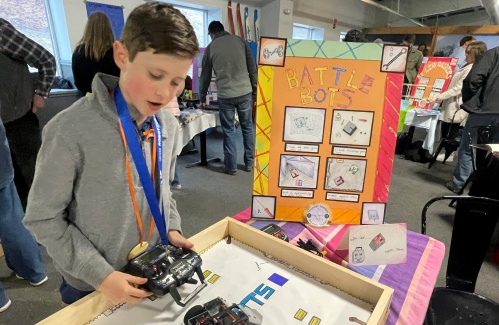
Mountain Shadows School hosts Olympic Studies Night
According to Temple Brighton, one of the co-founders of Mountain Shadows School, the school’s Olympic Studies Night was inspired by the 1984 Summer Olympics in Los Angeles. “There was so much energy around those Olympics, and all this excitement, and...
Sports
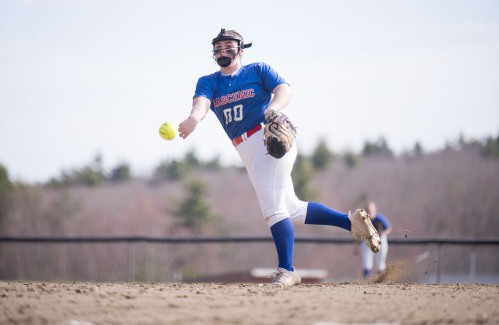
Katalina Davis dazzles in Mascenic shutout win
The Mascenic softball team soared to a 7-0 shutout win over regional and interdivisional rival Conant thanks to a dazzling performance on both sides of the ball from senior pitcher Katalina Davis. “When Kat’s on, they’re not hitting, so she was...
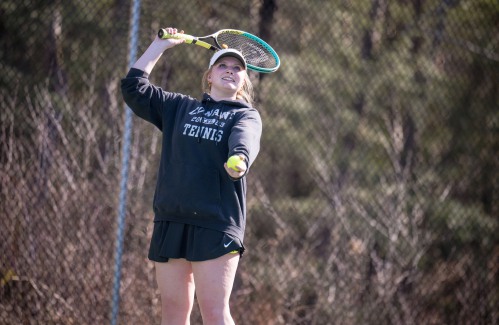 LOCAL SPORTS ROUNDUP: Conant girls’ tennis gets first win
LOCAL SPORTS ROUNDUP: Conant girls’ tennis gets first win
 Conant girls’ tennis continues to seek improvement
Conant girls’ tennis continues to seek improvement
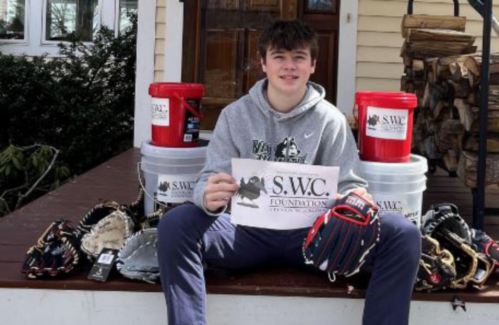 Jack Kidd and Kidd Gloves make donation to Mt. Monadnock Little League
Jack Kidd and Kidd Gloves make donation to Mt. Monadnock Little League
Opinion
Viewpoint: State Rep. Molly Howard – Public schools are the bedrock of communities
A recent Google search informed me that New Hampshire students rank sixth in the nation, according to U.S. News and World Report, with similar results on other sites.That’s pretty good, considering New Hampshire ranks 50th in public school funding,...

Business
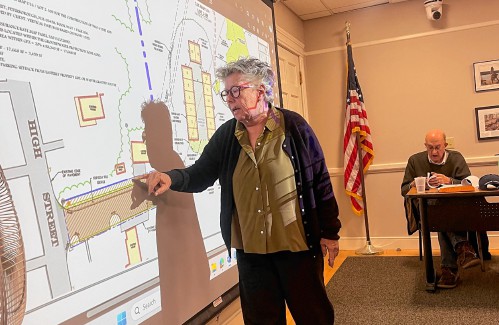
Peterborough Planning Board approves 14-unit development near High Street
The Peterborough Planning Board voted 4-2 Monday to approve Ivy Vann’s and Hugh Beyer’s application for construction of a 14-unit development off High Street after a public hearing.The hearing on the subdivision application followed a site walk of the...
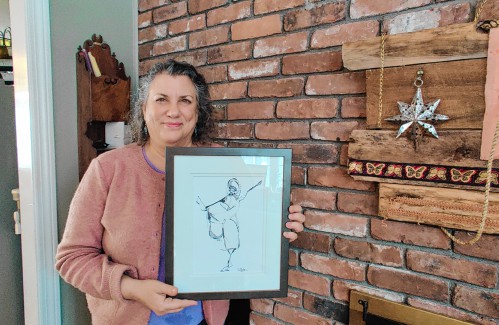 Deb Caplan builds a business out of her creative passion
Deb Caplan builds a business out of her creative passion
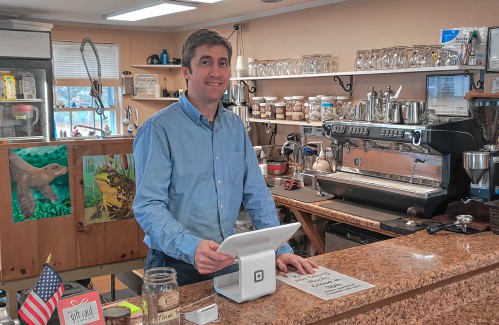 Parker and Sons Coffee Roasting in Peterborough strives to create the perfect coffee
Parker and Sons Coffee Roasting in Peterborough strives to create the perfect coffee
Arts & Life

Yoko Ono to receive MacDowell Medal
Artist and activist Yoko Ono is this year’s recipient of the Edward MacDowell Medal. Ono, whose career as an artist began in the downtown New York scene in the early 1960s and has continued across seven decades, has developed a body of work...
 Gnome Notes: Emerson Sistare – Amor Towles weaves tapestry in ‘Table for Two: Fictions’
Gnome Notes: Emerson Sistare – Amor Towles weaves tapestry in ‘Table for Two: Fictions’
 Jaffrey Civic Center hosting Heart of the Arts
Jaffrey Civic Center hosting Heart of the Arts
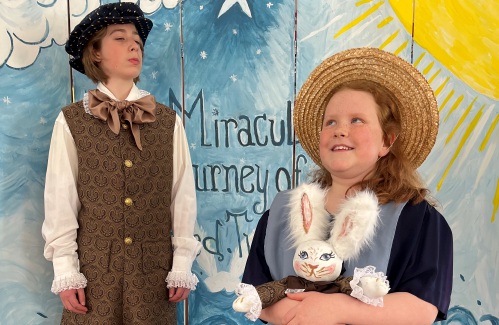 Project Shakespeare to present ‘The Miraculous Journey of Edward Tulane’
Project Shakespeare to present ‘The Miraculous Journey of Edward Tulane’
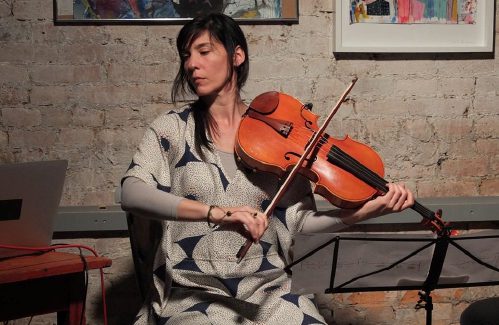 The Thing in the Spring returns May 16
The Thing in the Spring returns May 16
Obituaries
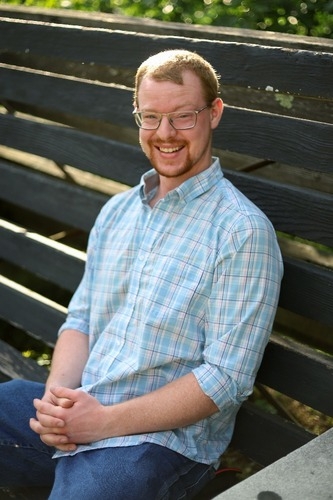 Kevvin W. Sawtelle 31
Kevvin W. Sawtelle 31
Kevvin W. Sawtelle, 31 Jaffrey, NH - Kevvin W. Sawtelle, 31, of Rindge, died peacefully on April 5, 2024, in the arms of his family at the Dartmouth-Hitchcock Medical Center in Lebanon, NH after a long battle with brain cancer. Kevvin w... remainder of obit for Kevvin W. Sawtelle 31
 Constance Boldini
Constance Boldini
Westmoreland, NH - Constance Marie (Wilson) Boldini, died April 16, 2024. She is predeceased by her husband Guido Boldini and her son Peter Vaillancourt. She is survived by two daughters, Anne Young of Tennessee, Brenda Bryer of Stoddar... remainder of obit for Constance Boldini
 Beverly R. Gienty
Beverly R. Gienty
Peterborough, NH - Beverly R. Gienty, 88, of Windsor, CT, formerly of Peterborough, Dublin, Francestown, and Jaffery NH passed away on April 14, 2024, at Kimberly Hall South, Windsor, CT. She was the widow of Edward H. Gienty. Beverly w... remainder of obit for Beverly R. Gienty
 David Albin Shaw
David Albin Shaw
Peterborough NH - David A. Shaw, age 85, of Peterborough died April 7, 2024 after a long co-existence with Alzheimer's disease. He will be missed by his family, friends and devoted caregivers. His care and their love in the Memory Suppo... remainder of obit for David Albin Shaw

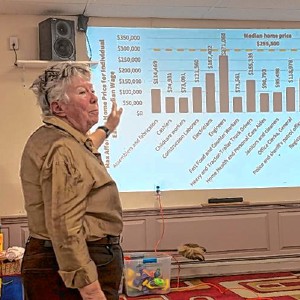 BUSINESS QUARTERLY: Grants allow towns to study housing
BUSINESS QUARTERLY: Grants allow towns to study housing
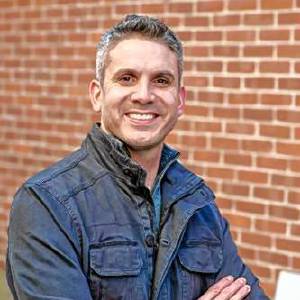 BUSINESS QUARTERLY: Dan Petrone – A guide to the commission settlement
BUSINESS QUARTERLY: Dan Petrone – A guide to the commission settlement
 BUSINESS QUARTERLY – Antrim Planning Board approves Battaglia subdivision
BUSINESS QUARTERLY – Antrim Planning Board approves Battaglia subdivision
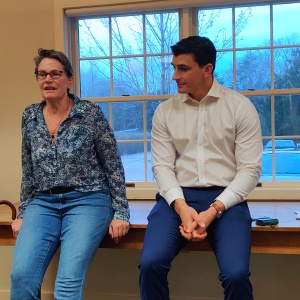 Molly Howard and Donovan Fenton talk issues at Hancock Town Library
Molly Howard and Donovan Fenton talk issues at Hancock Town Library
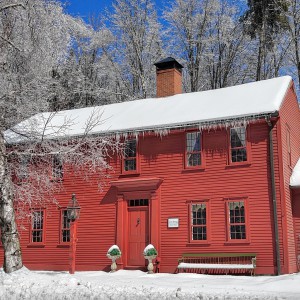 HOUSE AND HOME: The Old Parsonage in Antrim is a ‘happy house’
HOUSE AND HOME: The Old Parsonage in Antrim is a ‘happy house’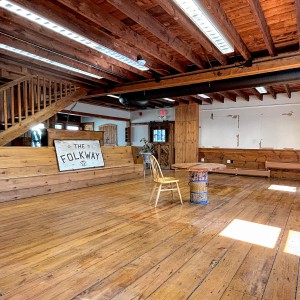 Former home of The Folkway in Peterborough is on the market
Former home of The Folkway in Peterborough is on the market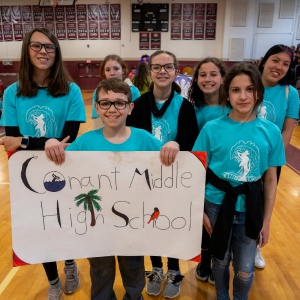 Two Jaffrey-Rindge Destination Imagination teams move on to Globals
Two Jaffrey-Rindge Destination Imagination teams move on to Globals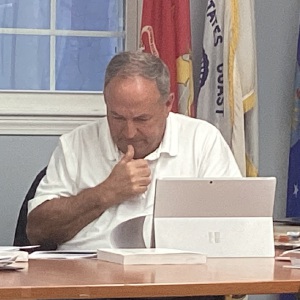 Old Homestead Farm in New Ipswich requests variance for short-term rental cabins
Old Homestead Farm in New Ipswich requests variance for short-term rental cabins
 HIGH SCHOOL SPORTS ROUNDUP: Tasha MacNeil leads the way for ConVal at Pelham Invita
HIGH SCHOOL SPORTS ROUNDUP: Tasha MacNeil leads the way for ConVal at Pelham Invita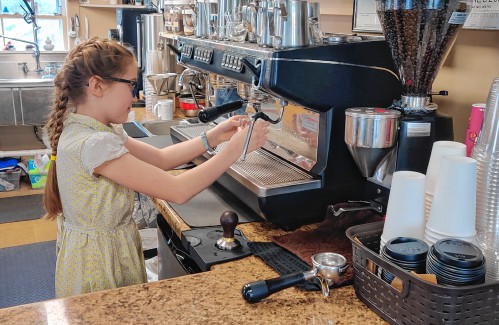 Parker and Sons Coffee Roasting in Peterborough strives to create the perfect coffee
Parker and Sons Coffee Roasting in Peterborough strives to create the perfect coffee
